Background
The Finnish Innovation Fund Sitra has participated in the European Commission’s public consultation and issued a statement on the European Commission’s Digital Decade – Digital Compass initiative.
The European Commission aims to guide the digitalisation development of member states through its plans for digital transformation by 2030. The Commission has set targets for the digital transformation in the EU’s Digital Compass and the Path to the Digital Decade.
The Commission has proposed a co-operation model to support the legislation, through which member states’ measures will be monitored. The initiative is intended to create a framework for co-operation between the Commission and member states and to translate the EU’s digital transformation targets into concrete action.
Sitra’s main observations
The data economy is a central part of Europe’s digital transformation policy, and data policy needs to be more visibly part of the Digital Decade targets and measures. As the title of the initiative suggests, the Commission’s proposal comprehensively addresses the Digital Decade targets from the perspective of digitalisation, but it falls short on data-related targets.
The Commission has promoted the data economy and the internal market for data through regulation, but Sitra stresses that regulation is just one tool. EU-level regulation needs to be supported by investments in skills, infrastructure and measures in private and public sectors. The targets set for digital transformation and the development of competitiveness cannot be achieved without investments in value-based data policy and fair data economy rules.
Sitra supports the Commission’s initiative to establish common Digital Decade targets for the EU and its member states. Without a common will and goal-oriented efforts by the member states, the EU risks falling behind its competitors in the digital transformation and losing the opportunity to influence the value base and rules of the game of digitalisation.
There is no time to lose, which is why Sitra encourages the setting of concrete and clear targets to guide the design of measures tailored to the national context and to further boost ambition, especially in the most advanced member states.
Sitra stresses that the Digital Decade targets should be sufficiently ambitious and that it should be possible to set higher targets where necessary. The starting level is uneven among member states, and the Digital Decade targets focus on raising the level of developing member states in particular.
In Sitra’s view, it is essential for the EU’s competitiveness and development to engage in urging the more advanced member states to reform more vigorously in the digital transformation, for example by encouraging member states to set themselves additional targets and concrete indicators for them.
In addition to collecting and analysing data on member states’ progress, the Commission’s annual report should present an overall picture of the global competitive situation and developments. Apart from quantitative measurement, development should also be monitored by qualitative indicators, at least in measurements between member states.
Sitra encourages active co-operation with stakeholders throughout the duration of the policy programme (drafting, modification, implementation of national plans).
The four areas of the Digital Decade targets
Sitra supports the Commission’s proposal for a clear division of the Digital Decade targets into four areas along the lines of compass points: skills, infrastructures, business and public services. Sitra stresses that, in addition to the four areas, the initiative should place more emphasis than previously proposed on themes that cut across each of the four areas: digital green transition, accountability and digital sovereignty.
Addressing the binding objectives of the green transition is an essential part of digitalisation, as already shown by the EU’s Green Deal. In Sitra’s view this dimension is currently not sufficiently reflected in the Commission’s initiative. Common digitalisation targets and incentive mechanisms (funding, co-operation projects) should promote the goals of the EU Green Deal by ensuring the resource efficiency and carbon neutrality of the digital sector and by creating data-driven and other innovative technological solutions to the sustainability crisis. The digital and green twin transition also requires measures that have not yet been identified, which will require data and investment in funding innovation for the twin transition.
Sustainability and accountability must be more strongly reflected in the reporting of progress towards the Digital Decade targets. According to a study commissioned by the European Commission in 2019, a huge amount of information on the overall impact of digitalisation remains unidentified. This gap can only be filled by regular obligatory reporting by member states, which is why it is essential that the sustainability dimension is clearly included in the annual reporting of the Commission’s initiative.
Digital sovereignty should be one of the European digital principles, which, alongside fundamental and human rights, shape the content of the Digital Decade targets and the activities of EU institutions. The digital sovereignty of individuals and businesses should be strongly reflected in all initiatives and measures.
Sitra proposes that, in addition to the cross-cutting themes, the targets under the four areas should be developed in the ways set out below.
Skills
By 2030, the majority of EU citizens will have at least basic digital skills and there will be at least 20 million ICT specialists employed in the EU. Digital skills are civic skills, and investing in them is important for the EU’s competitiveness, general prosperity, security and realising digital sovereignty. As a theme that cuts across society, new skills must be reflected in all education and training.
Basic digital skills are a good starting point for promoting the digital capabilities of individuals, but are not sufficient on their own. Adequate skills in areas, such as the anonymisation of personal data, encryption and cyber skills, need to be ensured at every level of society . Sitra considers it is essential that citizens’ digital skills cover not only ICT skills but also data literacy and cybersecurity skills. The role and importance of the management of organisations is emphasised in ensuring data and cyber security, where maintaining knowledge and skills are part of business management and cannot be solely outsourced.
To position itself in international competition, the EU must invest increasingly in building cutting-edge skills such as AI and data analytics. In addition to ICT experts and digital skills, excellence requires cross-sectoral insight. This finding is supported by Sitra’s business survey, which investigated the preparedness of European businesses to develop data-driven business.
Many businesses have already realised that they have large data reserves at their disposal, but the business benefits of data do not match potential. Our survey found that the main pressure points for companies are increased regulation, lack of skills in the renewal of business models and gaps in technical capabilities. In this dynamic environment, there is a need not only for ICT expertise but also business transformation and legal skills, among others.
Infrastructure
In 2030, digital infrastructure in the EU will be secure, functional and sustainable. The digital and green twin transition must shape the development of digital infrastructure. The implications for the digital sovereignty of organisations and individuals should also be analysed.
In infrastructure development, ambition can be further increased in areas where the EU has the potential to be a global leader, such as the development of 5G and 6G networks and standards. Achieving and maintaining a high level of cybersecurity also requires investment.
Sitra stresses that soft infrastructure should be mentioned in the targets in addition to more “traditional” infrastructure. A functioning internal market for data is based on the technical and semantic compatibility of systems and data, which is being developed in areas such as data spaces, digital identity and the real-time economy. Sitra has worked with a wide range of stakeholders to provide businesses with practical examples of fair data economy practices (Sitra 2020, IHAN Blueprint 2.5) and contractual templates for fair data sharing (Sitra 2021, Rulebook for a fair data economy).
The development of a common digital infrastructure should take into account the common needs of different sectors. Too often we build sector-specific solutions for each area of society, when we could achieve more effective and better infrastructure through joint cross-sectoral solutions.
Digital transformation of businesses
By 2030, businesses in the EU will make extensive and agile use of the opportunities and efficiency gains of digitalisation in their operations. Sitra stresses the importance of the renewal of business models and to make them data-driven, particularly in the SME sector. The internal market for data is a key aspect of companies’ digital transformation and business facilitation, which is why efforts should be made to remove existing obstacles.
The aim of regulation is to enable the internal market for data and promote fair, data-driven business. However, legal uncertainty jeopardises the potential of the European data economy from being realised. According to Sitra’s business survey, a lack of understanding of regulations and business models prevents European companies from benefiting from the potential of the data economy, even if they have data assets of their own.
To ensure coherence and the internal market for data, it is important that the regulatory picture and the relationships between the different initiatives and tools are more clearly described. SMEs in particular need support to navigate the digital transformation and the changing regulatory environment. One way of doing this is to channel business support to Digital Innovation Hubs, which should be allocated sufficient funding for this purpose. Sitra’s business programme could serve as an example.
Digitalisation of public sector
By 2030, EU citizens will have digital access to key public services and their own health data, and a digital ID will be available for identification. Sitra points out that public sector services need to be defined to cover not only healthcare but also the social dimension and well-being.
Sitra supports governance reform from the perspective of sovereignty to give citizens even better opportunities to influence the activities of government and use their rights (for example, to access and manage the use of their personal data). In a functioning internal market for data, the equality of EU citizens and equal access to public services and health data should be guaranteed throughout the EU, regardless of the member state.
Sitra calls for higher targets should to be set for issues concerning health data and personalised healthcare services. Health problems, whether communicable diseases or lifestyle diseases – are similar in every country. Solutions should therefore be sought jointly. The relationship between national and EU legislation in regulating health data should be clarified. The European Health Data Space needs a stable legislative basis and common rules and practices on the use of data, both in the health data space and between other European data spaces.
Implementation and monitoring the targets
Having a common tool for regular monitoring of the implementation of the targets is welcome. Sitra supports the effort to keep the overview that will evolve over the current decade as easy as possible to follow and understand. The proposed “traffic light” scoring system is a good way to monitor joint progress towards the targets and revise the content of the targets if necessary.
Data compatibility must be ensured when collecting data on different member states’ progress to ensure optimal reporting and comparability of data. This should particularly be taken into account in situations where no data or report on a member state’s progress is available and the Commission compiles data on that member state in a manner of its choosing.
Sitra believes that, in addition to a set of indicators, the EU needs strong foresight and future-oriented thinking to ensure that the ever-changing environment is taken into consideration efficiently and optimally. It is not possible to set the targets high enough just by looking in the rearview mirror.
The Commission intends to review the targets by 2026. Sitra encourages openness and clarity in the process so that it is as predictable as possible and legal ambiguity does not create unnecessary delays for business and innovation in the EU.
In terms of resources, targets must also be set sufficiently high. A functioning internal market for data will require investments in terms of enhanced co-ordination, as a comprehensive EU-level overview of initiatives, measures and stakeholders promoting the digital transformation is still lacking. Sitra welcomes the incorporation of the production and assessment of the overview into the Commission’s annual reporting.
The Commission should pay attention to the way it approves and monitors member state-specific recommendations. Sitra proposes that this process be closely integrated with other EU programmes that promote the digital transformation, as it is essential that the Digital Decade targets contribute to other EU programmes (such as the green transition programme) and initiatives with which they have natural linkages.
These linkages between the proposed targets and tools (such as the European Digital Infrastructure Consortium EDIC, which aims to enable project implementation in the absence of an alternative mechanism) need to be more clearly highlighted (such as the nine sector-specific data spaces published in connection with the Data Governance Act).
Sitra’s statement is also available on the Commission’s website.




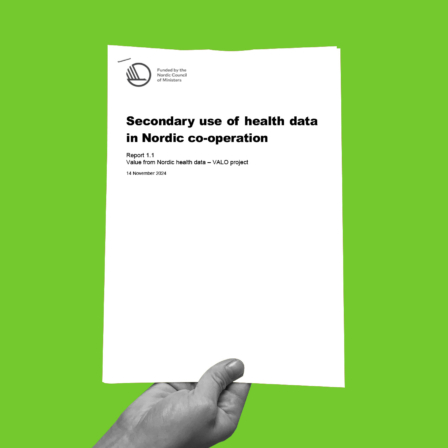
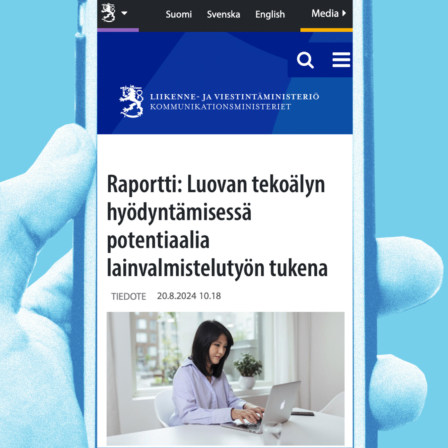

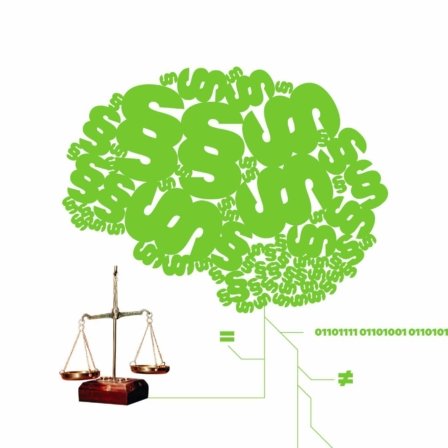






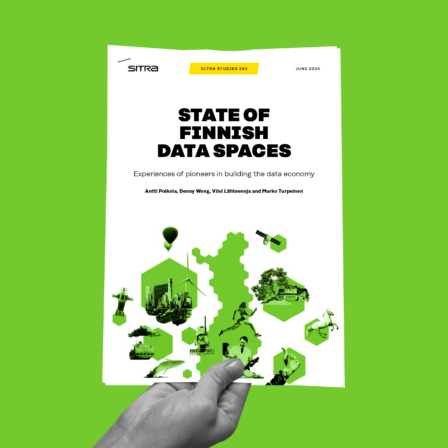
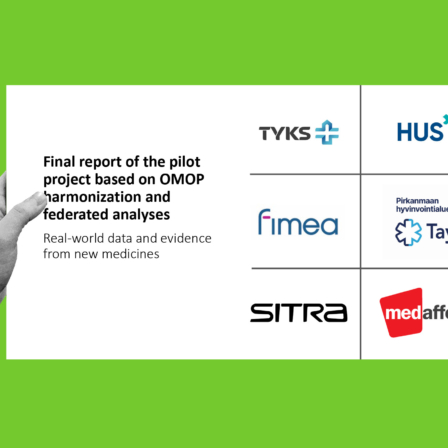

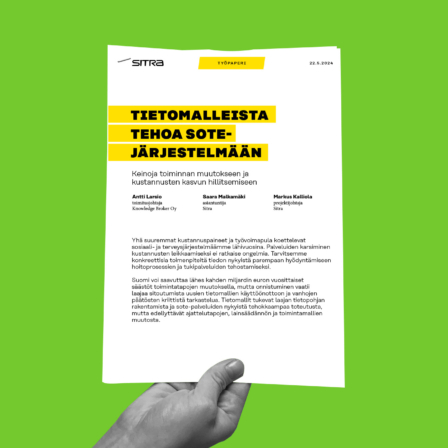


Recommended
Have some more.